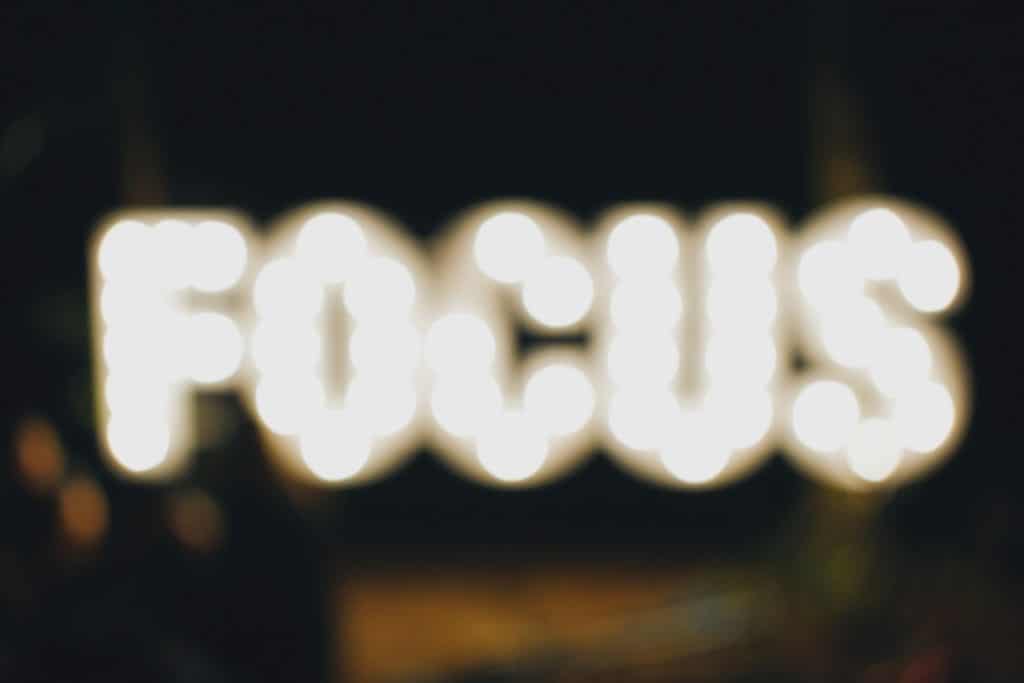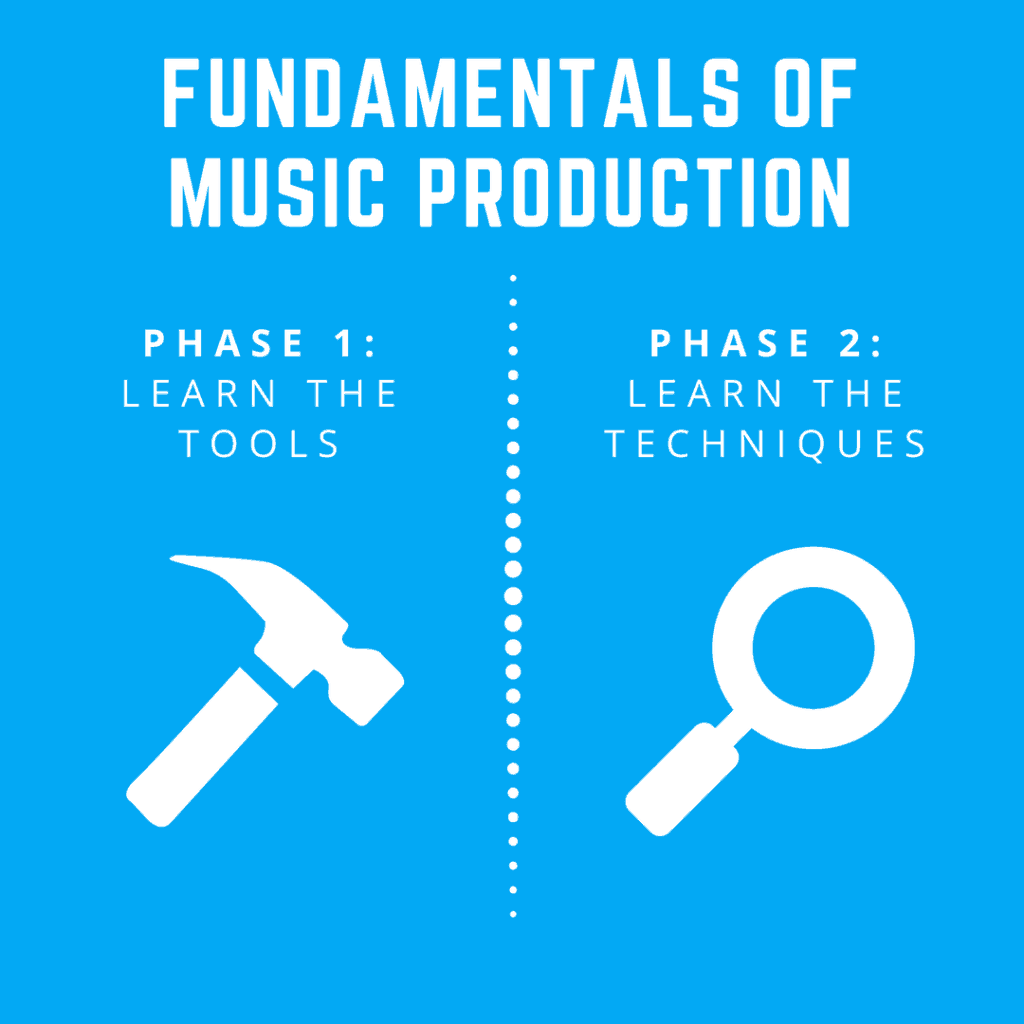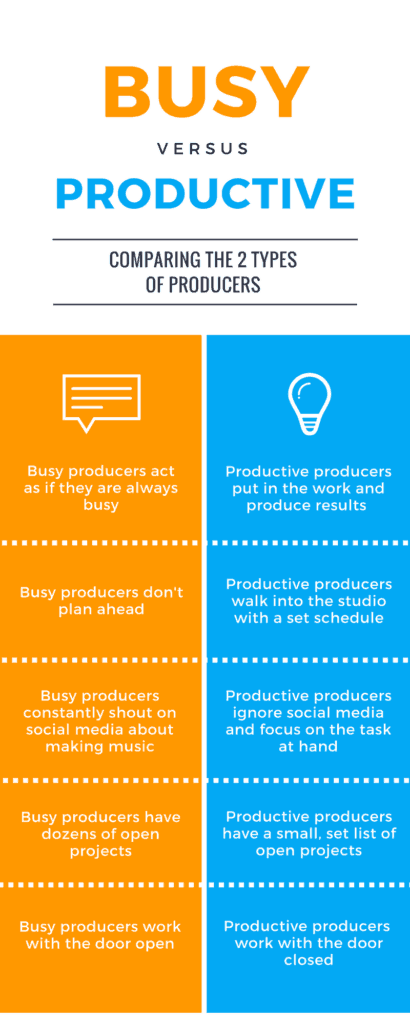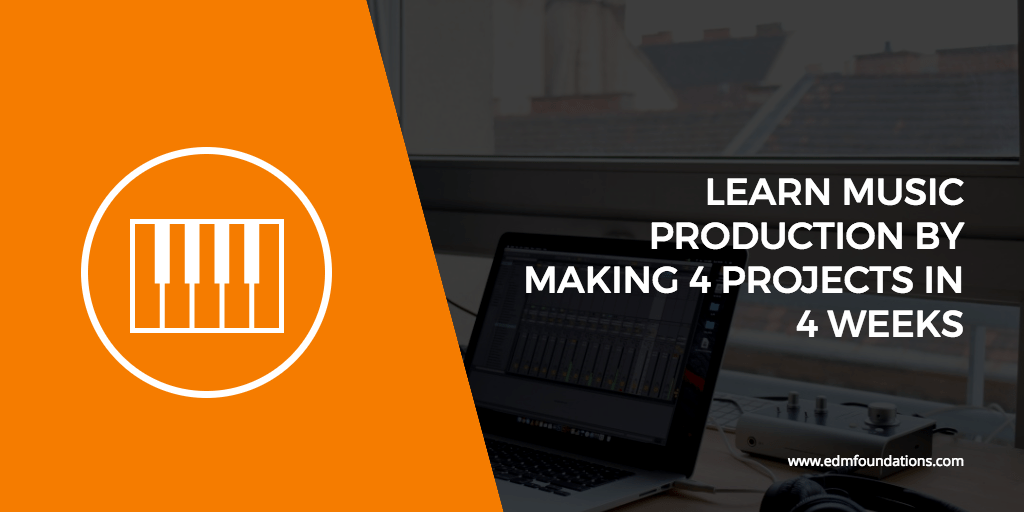What should you focus on as a beginner?
What should you learn first?
How should you divide your time between learning and production?
It’s easy to forget about what matters most.
To help give you direction, here are five pieces of advice on what to focus on as a new producer.
1. Focus On The Fundamentals
It’s hard to paint if you don’t know how to hold a paintbrush.
Likewise, it’s hard to produce a full track without a basic grasp of the tools.
The first thing you should do is to learn the fundamentals of music production.
You can divide this “learning” into two phases:
You can think of Phase 1 as the how, and Phase 2 as the why.
In Phase 1, you learn how to operate the basic functions of your DAW and plugins.
This includes:
- Operating the essential functions of a DAW
- Working in audio and MIDI
- Writing a basic chord progression and melody
- Using a synthesizer like Serum or Sylenth1
- Building a basic drum loop
- Creating 4-bar loops
In Phase 2, you learn essential production techniques and theory. This is where you’ll learn when and why to use your tools.
This includes:
- Using common mixing tools such as EQ, compression, and reverb
- Using music theory to write songs that make sense to the listener
- Adding tension and release to create dynamic and interesting sections
- Using sound design to craft original and interesting sounds
- Writing and arranging a full track
An example of this:
- In Phase 1, you should learn how to operate an EQ, i.e. how to boost/cut a frequency, how to make a lowpass or highpass
- In Phase 2, you should learn why you need to use an EQ, i.e. to balance two instruments, to clean up the tone of a sound
Where can you learn all this information?
Watch Youtube tutorials, read plugin manuals, take a production course, read articles, or pick up a book on music production.
Want to speed up the learning process and follow a specific framework? Check out EDM Foundations.
2. Focus on Completion, Not Perfection
You will make hundreds of bad songs before you make a good song.
There’s no way around this.
So don’t focus on making every track perfect. Aim for completion, not perfection.
Sam Matla explains this concept in his mega guide “How to Make Electronic Music: The In-Depth Guide to Being an EDM Producer”:
“Let’s say you and I are both new to production.
You decide that you’re going to spend 6 months making your first song.
You’re going to make it as great as you can. After all, quality is better than quantity, right?
I, on the other hand, know that my first several songs aren’t going to be that good—no matter how much effort I put into ’em.
So I decide to make one song a week.
At the end of the 6 months, you’ve made one song.
You’ve composed ideas for a song once. You’ve arranged a song once. And you’ve mixed down a song… once.
I’ve composed 26 ideas. Arranged 26 songs. And I’ve performed 26 mixdowns.
Who’s going to be better? Who’s going to have more experience?
I am. I’ve solved more problems than you have. I’ve encountered more challenges. I’ve built the habit of finishing. I’ve had to learn and use more skills.” – Sam Matla
3. Keep Realistic Expectations
It takes time to write good music. It takes time to grow a career.
Focusing on “making it” as an artist will leave you frustrated. Because anything less than your unrealistic goal is a failure.
Instead? Set attainable goals.
Set goals where you can control the outcome: such as finishing two songs per month.
Don’t set goals that are outside of your control. Want to play at a big festival or get signed to your favorite label? Someone else is calling the shots here.
Focus on incremental progress, and the rest will come in time.
4. Be Productive, Not Busy
It’s easy to fall into the “busy trap.”
You put in effort with nothing to show for it.
You don’t want this. You want results.
You don’t want to spend three weeks mucking around with only a 4-bar loop at the end.
You want a finished track you can share with your friends and family.
Avoid being the busy producer. Be the productive one. Here’s the difference…
5. Keep It Fun
When I was learning to make music, I felt frustrated all the time.
I’d walk into the studio with a bad attitude. I’d work for an hour, get frustrated, and then delete the project.
I’d hear songs that made me want to quit production because I never thought I’d be at the same level.
This attitude was toxic.
It made me loathe production. It stunted my growth.
How did I get out of this mindset?
I focused on actually enjoying the creative process.
Instead of worrying about the outcome of a track, I put my energy into having fun while making it.
I let the session drive the project, and I didn’t care whether it would fit a certain label or genre.
As a result, I started finishing more music. It also sounded more professional.
And it was the first time in my life where I was excited to show my music to my friends and family.
All this was sparked by one simple change…
I prioritized fun.
If the writing process isn’t fun, what’s the point?
Conclusion
Learning electronic music production is daunting. But it can and should be fun. Make sure that you’re learning what’s important, not what’s trendy to learn. Focus on finishing. Keep your expectations (and your ego) in check. Be a productive producer. But most importantly, enjoy it. Otherwise it’s pointless.
Want to master the fundamentals of electronic music production?
EDM Foundations is the course for you.
It’s simple, to-the-point, and action-oriented. You won’t spend hours trawling through dry theory videos, you’ll be learning as you go.
By the end of the course, you’ll have finished 4 songs, including one original you can share with family, friends, and the world.
[x_author title=”About the Author”]




